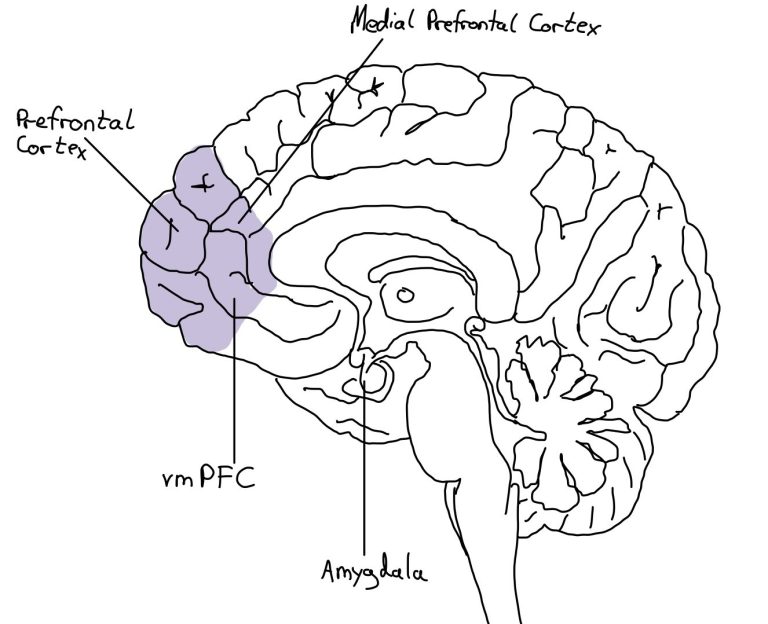Success (biology based)
The dictionary defines success as „the accomplishment of and aim or purpose“.
But If you search the internet for its meaning, you get millions of results. And that‘s what defines success. Success has no universal definition. Everyone must define it for themselves.
Many people first think about wealth: a huge house, a Porsche, financial freedom. That is because money often seems like the solution to our problems. For some, success might mean earning respect from those around them through a nice car. For others, is is simply being able to care for their loved ones with enough food and without worries. In the end, we define success as the improvement or solution of our current situation and challenges – the thing that gives us what we most deeply seek.
The danger of chasing an illusion
However, it can be dangerous to dedicate your life to chasing success that is defined only by external validation or wealth. This constant striving can train your brain to never feel satisfied.
Take the example of a heavyweight champion who fell into deep depression after winning the championship. He conditioned his brain to always want more. Reaching the goal did not bring peace, it only left a void.
True satisfaction comes from understanding what success genuinely means to you – a journey shaped by personality, past experiences, and inner values.
The Neuroscience behind success
At the center of this concept lies your brain. Despite human individuality, our brains are structurally quite similar. Still, how we experience the world – and define success – depends on both our genes and our life experiences.
One key player is the prefrontal cortex, the area of your brain behind your forehead. It is responsible for complex thinking, decision-making, and planning. The goals you set and your future plans are chemical reactions in this area.
The ventromedial prefrontal cortex (vmPFC)
A subregion, the ventromedial prefrontal cortex (vmPFC), plays a crucial role in determining what you find meaningful and rewarding. It helps you decide what is worth pursuing and what success feels like.
The vmPFC doesn‘t work alone. It interacts with the the hippocampus, a part of the brain that strores memories. Additionally, it interacts with the amygdala, which processes emotions, and with feedback from social interactions.
After trauma, cultural shifts, or life breakthroughs, measurements show that the vmPFC activity and its neural connections change.
What motivates you: dopamine and the reward system
The mesolimbic dopamine pathway drives your motivation. This system is activated when you see or think about something desirable – like winning a competition, getting praise, or eating the favorite food. It releases dopamine, a neurotransmitter that makes you feel rewarded and encourages you to pursue goals.
When you imagine achieving a goal you consider successful, your brain predicts the reward and releases dopamine in anticipation. This is why imagining success (visualization) can actually strengthen goal-oriented behavior.
Why success feels different for everyone
The brian’s value system
The vmPFC tells the dopamine what is valuable. Because this region is shaped by your unique experiences, culture, and personality, everyone‘s success is different. Does that imply that we are merely a product of history and gens?
- People with stronger vmPFC-hippocampus connections tend to base success on personal meaning and memory.
- Those with stronger medial prefrontal cortex – anterior cingulate cortex (mPFC-ACC) connections may define success in more social or approval-based terms.
Also, sensitivity to dopamine varies. People who are more dopamine-sensitive often crave intense forms of success – such as money, power, or risk-taking.
History wires the brain
Our early environment plays a big role. For example, if your parents praised you for getting good grades, your brain may associate achievement with success. If you were rewarded for being kind or emotionally expressive, you may define success through connection and contribution instead.
Each time you get praised or achieve something meaningful, those reward pathways in your brain are strengthened. This process is called synaptic strengthening. It deepens your individual definition of success with stronger connections between theses certain brain cells (neurons).
The illusion of approval
Praise and approval from others activate reward areas in your brain, particularly the medial prefrontal cortex, releasing dopamine. Over time, your brain learns to associate others‘ praise with success – even if it is just a short dopamine flush and does not truly fulfill you in the long run.
A philosophical note on spontaneity
Have you ever found yourself daydreaming, your mind drifting without any external trigger? This is known as spontaneous thought and often draws from memory, emotion, and imagination.
Although spontaneous thinking is hard to study, it may be influenced by the chaotic and probabilistic nature of brain activity.
But, isn’t it interesting that so many things happen spontaneously? On the tiniest scales, quantum mechanics takes over and we are confronted with Heisenberg‘s uncertainty principle and quantum phenomenons like quantum tunneling.
While this does not directly explain thinking, it reminds us that our brain is a structure of particles governed by scientific laws – and perhaps, not all thoughts can be predicted.
Your brain is not born with a fixed idea of success. It builds this idea pieces by piece over a lifetime – shaped by society, healed through experience, and rewired by awareness.

©Copyright. All rights reserved.
Wir benötigen Ihre Zustimmung zum Laden der Übersetzungen
Wir nutzen einen Drittanbieter-Service, um den Inhalt der Website zu übersetzen, der möglicherweise Daten über Ihre Aktivitäten sammelt. Bitte überprüfen Sie die Details in der Datenschutzerklärung und akzeptieren Sie den Dienst, um die Übersetzungen zu sehen.